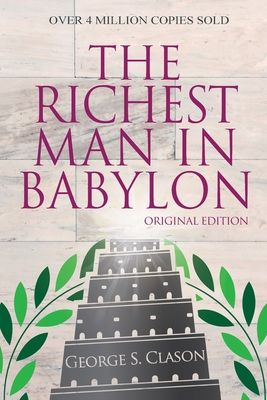Books I'm reading: The Richest Man in Babylon
A short review of a book which imparts financial advise via fictional stories set in the times of the ancient Babylon empire.

By George Clason and given to me as a gift, it is a financial literacy book. It uses fictional accounts of citizens of Babylon and nearby countries to teach how proper money management can transform a persons life. Although sold as a book, it is actually a collection of pamphlets written by the author over the span of many years.
The good
The advise of the book is sound and still applicable even as the world economy has much changed since the time it was written. The main point of the book is to save a portion of your income and invest it. This is good advise specially since the most common layperson economical activity of having savings account no longer offers the returns it used to.
Another good piece of advise, is the concept of frugality. It is possible to set aside a portion of income and still manage to enjoy the same level of living standard. This is because we tend to spend as much money as we buy for emotional returns and not by logical conclusions. Removing a portion of income thus removes a little disposable income which would otherwise be spend on superfluous things.
Besides these two, the other piece of advise worth mentioning is to seek the advise and/or invest based on the advise of people who've had success in investing and not in those who say are knowledgeable but don't have anything to show for it. This includes those that have great ideas for projects and investing but are about wares or works for which they have no previous experience.
I'm not a fast reader when it comes to non technical literature and managed to finish the book in about five nights.
The bad
Since the book is a compendium of pamphlets, this makes it feel sometimes disconnected and repetitive. The same advise is presented by and to characters in different stories. Most of the times rephrased, but sometimes almost verbatim.
The other aspect of the book that made it a bit hard to read was the excessive use of archaic English. Words like thou, thy, thee, thine, thyself had me confuse the subjects in the stories a few times. This did not affected the financial advise, but broke the cadence of the story as I had to back trace a few times to understand fully who and what was being described.
Conclusion
Besides the financial advise, the book manages to impress a positive attitude toward money, not as a thing to collect but as a unique tool that has the ability to multiply if properly used.
Money is also presented as an important component necessary for holistic happiness, and the one that actually exerts the most influence in the quality of life of an individual, a family group, and a society.
The book (and pamphlets) were written with the intent to teach financial acumen to laypersons. On this regard I think it succeeds very well and the advise it presents is still applicable to our modern times.
It is a good book for almost every body and one that like with myself, makes a great gift.